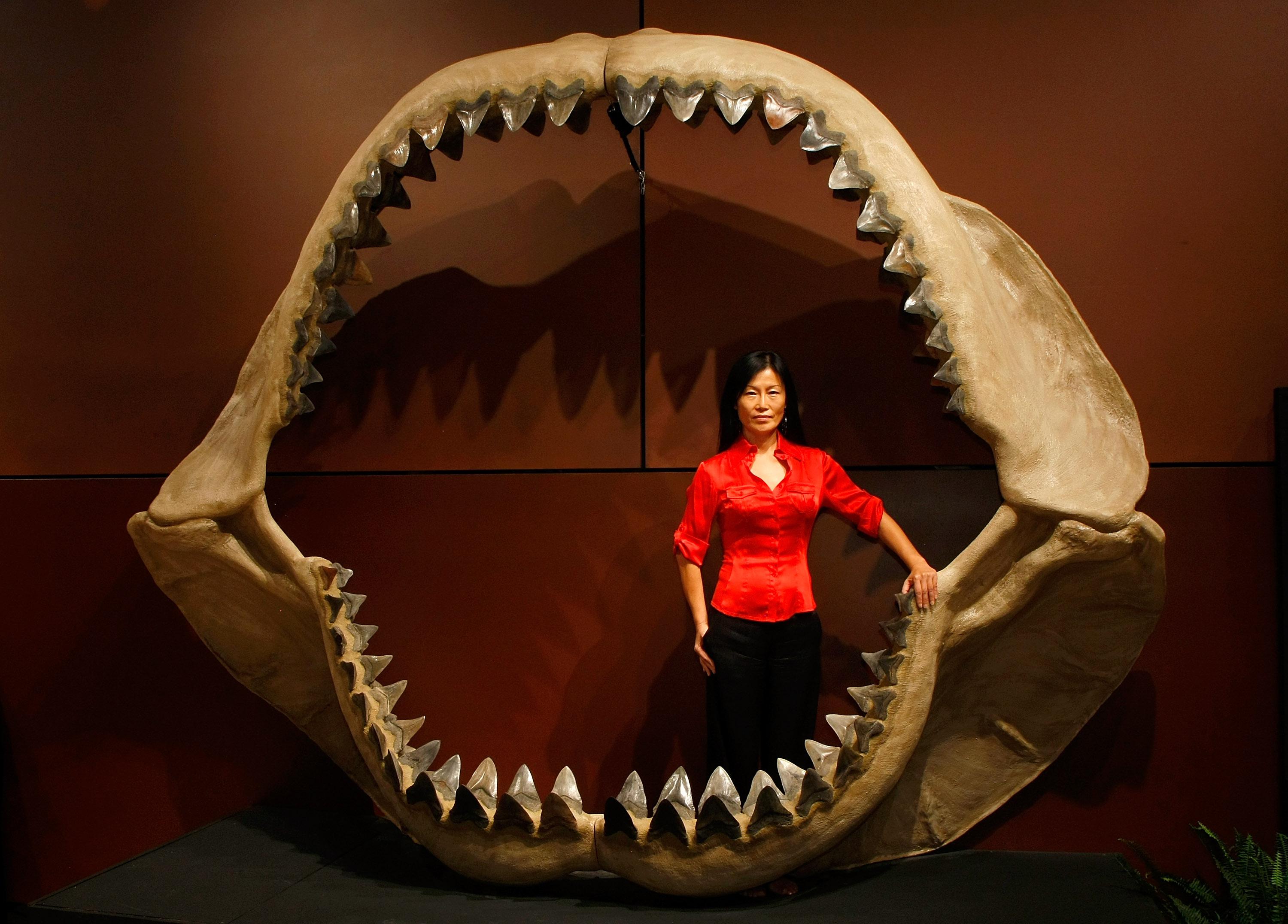Carcharocles megalodon sharks were amazing animals. They were capable of growing up to 50 feet long and are commonly regarded as the largest predatory sharks that ever lived. Savvy readers will notice I used the past tense to describe megalodon, because there is absolutely no doubt whatsoever that these sharks are extinct and have been for millions of years. If a 50-foot-long predator that fed on surface animals and lived in coastal environments were still around, someone would have found evidence of this by now.
You wouldn’t know that megalodon is extinct from watching the Discovery Channel’s “Shark Week” documentaries, though. In 2013, Shark Week aired Megalodon: The Monster Shark Lives, the latest in a series of totally made-up nonsense from Discovery Channel and Animal Planet, also known as “the rotting carcass of science on TV.”
The Monster Shark Lives featured actors playing scientists, photoshopped pictures, and fake digital video. At no point in the documentary did it mention that it was fictional, causing many viewers to believe that these animals are still alive—and Discovery even bragged that 73 percent of viewers now thought that megalodon isn’t really extinct. Conservation activists have been upset at Shark Week’s focus on fear-mongering “shark attack” specials rather than the conservation of a group of animals of which 25 percent are threatened with extinction. But this film’s blatantly lying to viewers was the last straw for many. It was strongly condemned by many scientists, including myself.
Misinformation on this large a scale matters. Shark Week documentaries are watched by tens of millions of people, and they generate almost twice as much Twitter conversation as the infamous “Red Wedding” episode of Game of Thrones. As a marine biologist interested in outreach, I speak to hundreds of high school students each year, even earning an award as “Florida’s marine science educator of the year.” Not once since The Monster Shark Lives aired have I spoken to a group of children and not been asked about megalodon.
After all the controversy and negative publicity the Discovery Channel received for its dishonesty last year, I was shocked and angered to see that Shark Week 2014 will feature Megalodon: The New Evidence, airing tonight after a repeat of the original Megalodon film. The message people at the Discovery Channel are sending is that “they don’t care what their audience thinks, they don’t care about educating their viewers, and they don’t care about accuracy,” says marine biology grad student and blogger Christie Wilcox. “All they care about is ratings, and they’ll deceive if not outright lie to their audience to get them.”
The information in the press release about this documentary reveals the Discovery Channel’s relationship with the truth:
In April 2013, a fishing vessel off the coast of South Africa was attacked, killing all on board. A TV crew documented marine biologist Collin Drake as he worked to determine the predator responsible. Megalodon: The New Evidence presents SHARK WEEK viewers with shocking new evidence and interview footage.
The supposed fishing vessel incident did not occur; it was entirely made up for the purpose of storytelling. Collin Drake is not a marine biologist; he is a fictional character played by an actor. I haven’t yet seen the 2014 version, but if it’s anything like the last time, the “shocking new evidence” will be completely and totally fake. Most of the rest of Shark Week 2014’s programming also appears troubling: Titles such as Shark of Darkness, Zombie Sharks, and Lair of the Mega Shark are unlikely to contain a great deal of science and conservation content.
Shark Week runs through this weekend. If you want to learn about some of the most amazing and misunderstood animals in the world, read a book instead.
